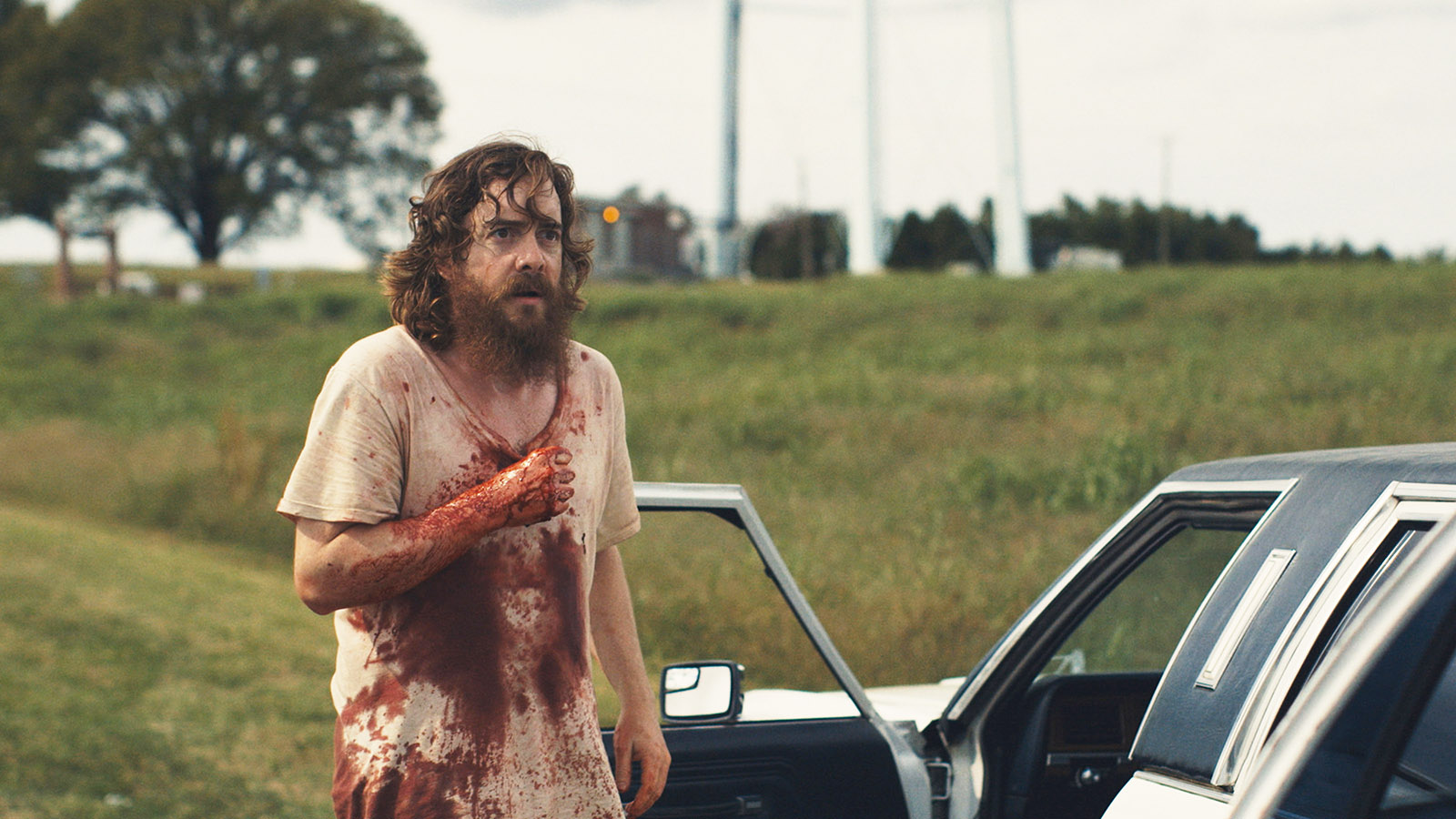Movie Review: ‘Blue Ruin’

RADiUS-TWC
"Blue Ruin"
Directed by Jeremy SaulnierRADiUS-TWC
By Asher Landau
April 25, 2014 12:55 a.m.
Few genres evoke sympathy for protagonists with insatiable bloodlust the way revenge movies do. Utterly
unrealistic and dementedly satisfying, revenge films capture a simplistic desire for a world in which the weak successfully punish the powerful, preserving justice in the face of evil.
“Blue Ruin” takes the opposite approach, in which plans of vengeance do not operate seamlessly. Directed, written and produced by Jeremy Saulnier, “Blue Ruin” stars Macon Blair as Dwight, a wandering vagrant who learns his parents’ murderer has been released from prison on a technicality.
Despite lacking killer instinct and experience wielding a gun, Dwight decides to take justice into his own hands, resulting in a botched murder. This and several subsequent warring events pull him deeper and deeper into a web of retaliation.
Family becomes the prime motivation of every character, with Dwight desperately trying to ensure his own safety and that of his estranged sister Sam (Amy Hargreaves) against the murderer’s family’s quest to even the score.
The tension throughout “Blue Ruin” thrives off of everyman Dwight as he enters an unfamiliar world of never-ending violence. At every turn, Murphy’s Law operates in full force. Dwight invariably loses the upper hand and barely escapes close calls with death – during his first murder, even though he is armed with a knife and maintains the element of surprise, he winds up being strangled by his target.
Dwight is one of the few people in the film with a conscience, making him a character who is simultaneously easy to root for and annoyingly naive. He feels obligated to commit extreme acts of violence to even the score with his parents’ murderer, yet assumes that the world will easily allow him to do so.
This gullible attitude is what makes “Blue Ruin” so convincing. Dwight’s continual incompetence accurately reflects what average moviegoers would experience if they found themselves in a similar situation – there is an unfulfilled expectation that his actions will be clean-cut or, at the very least, moral.
“Blue Ruin” squashes the idealism of typical revenge movies, in which the protagonist maintains control while wrongdoers are in a constant state of defense. Instead, Dwight’s situation frequently alternates between polar opposites: active retaliation and frantic survival. Sometimes the action is so jarring and fast-paced that it’s impossible to tell which situation is which.
Blair is, physiologically, a perfect fit for the character of Dwight and his situation. Wide-eyed, with a remarkably average appearance, Blair accentuates Dwight’s feelings of terror and helplessness throughout the film.
However, the plot can seem sparse at times, relying on a pretext of subtlety and ambiguity far too often. Besides Dwight, the characters in “Blue Ruin” come off as flat, unable to evoke sympathy or scorn because they lack a defining back story or personality.
This vagueness also works to the film’s benefit, reflecting Dwight’s lack of perception and understanding regarding his parents’ killer. Saulnier’s characterization of the killer as a faceless enemy emphasizes the moral haziness of Dwight’s vengeance.
Regardless of its inconsistencies, “Blue Ruin” is a well-constructed film. At a certain point, Dwight’s sinful intent transforms from a heartfelt desire to a desperate attempt to salvage his own life. Unfortunately, he learns too late that blood feuds are best left to the pros.
– Asher Landau


